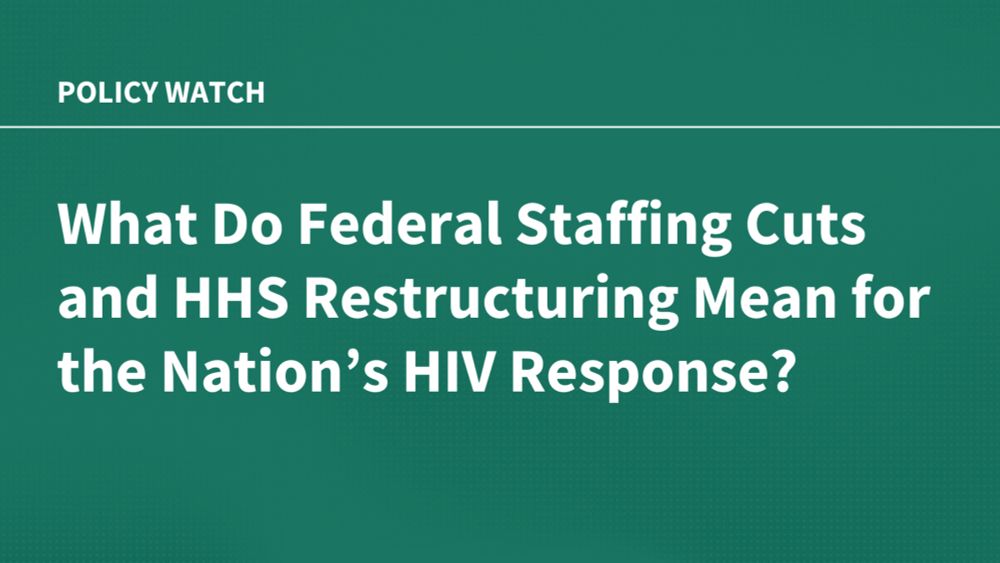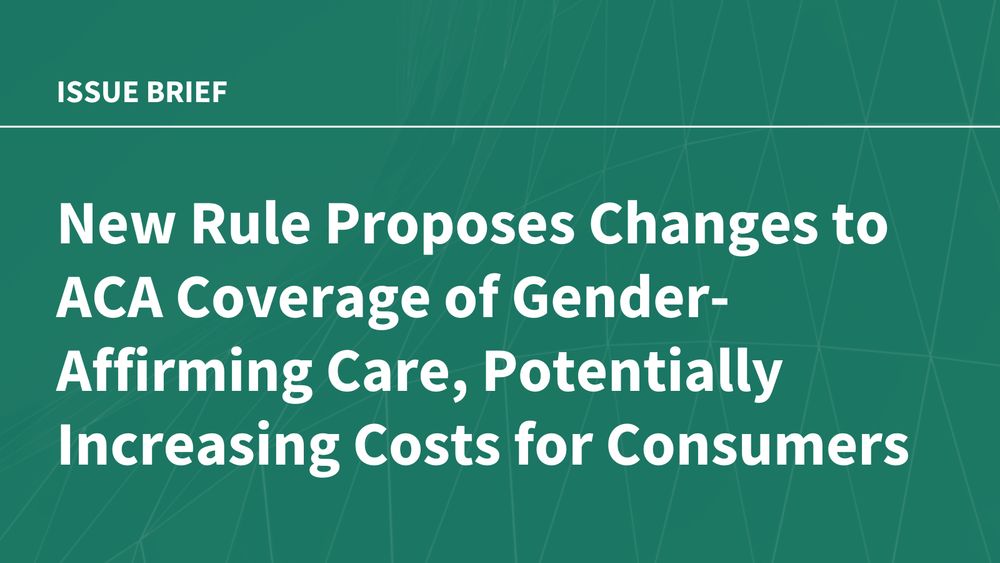Lindsey Dawson (she/her)
@lindseydawson.bsky.social
740 followers
220 following
19 posts
Director, LGBTQ Health Policy; Assoc. Director, HIV Policy @KFF.org
Writing & thinking about health access & data related to #HIV and #LGBTQ+ health policy.
Posts
Media
Videos
Starter Packs













![FF graphic featuring a quote from Lindsey Dawson, KFF Associate Director for HIV Policy. It says, “Eliminating [HIV prevention] funding could jeopardize recent successes in addressing the nation’s HIV epidemic, including those related to the Ending the HIV Epidemic Initiative, which the first Trump administration created... Diminished prevention efforts would likely lead to an increase in HIV incidence, with negative implications for individual well-being, public health, and health costs.”](https://cdn.bsky.app/img/feed_thumbnail/plain/did:plc:zpwka3ky6phhcwmwor4tu5xj/bafkreicwmuadlrwfrr4pm2z432lryrlamdzljnx7mdy6fjjptttsdjjnke@jpeg)


